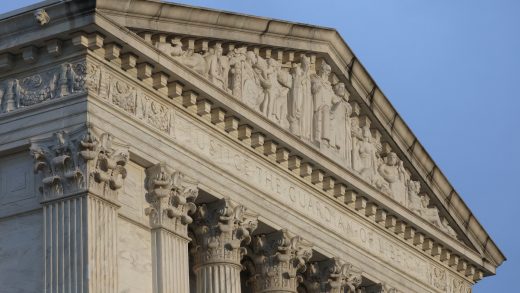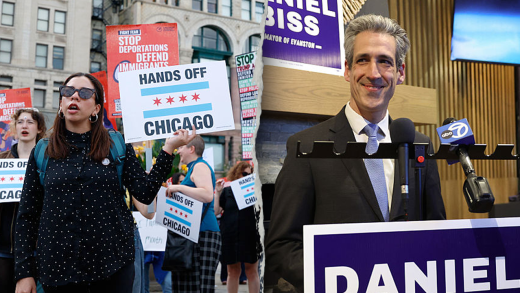Washington — The Supreme Court is hearing arguments Tuesday in a Colorado counselor’s challenge to the state’s ban on “conversion therapy” for minors.
The case was brought by Kaley Chiles, who argues the state’s restriction unconstitutionally censors conversations about gender dysphoria and sexual orientation that she seeks to have with young patients. Chiles, who is Christian, says she wants to engage in talk therapy with minor clients who want to “reduce or eliminate unwanted sexual attractions, change sexual behaviors, or grow in the experience of harmony with [their] physical body.”
But she says she fears that having those conversations with young patients puts her at risk of violating Colorado’s law. Lower courts ruled against Chiles, finding Colorado’s law regulates professional conduct.
Called the Minor Conversion Therapy Law, Colorado’s ban was enacted in 2019 and prohibits mental health professionals from engaging in any practice or treatment, including talk therapy, that attempts to change an individual’s sexual orientation or gender identity, including efforts to “change behaviors or gender expressions or to eliminate or reduce sexual or romantic attraction or feelings toward individuals of the same sex.”
Violators face fines of up to $5,000 and risk being suspended from practicing or stripped of their license. Colorado is one of more than 20 states that have enacted bans on “conversion therapy.”
Several years after Colorado’s law took effect, Chiles sued state licensing officials, arguing that the ban violates her free speech rights by censoring her conversations with patients based on viewpoint and the content of those discussions.
Colorado has not taken any disciplinary action against Chiles or any other licensed therapist for violating the ban, it said in court papers, and the state asserts that the talk therapy Chiles’ aims to provide wouldn’t defy its law because she expressly doesn’t seek to change a patient’s gender identity or sexual orientation.
“The only thing that the law prohibits therapists from doing is performing a treatment that seeks the predetermined outcome of changing a minor’s sexual orientation or gender identity because that treatment is unsafe and ineffective,” they wrote in a filing with the Supreme Court.
Still, Chiles’ lawyers argue that the law prevents families and teens who want to address gender dysphoria by aligning identity and sex from working with a licensed counselor to help reach that goal. But practices that provide assistance to patients undergoing gender transition are allowed under the law, they said.
“The Free Speech Clause forbids the State from censoring mutual conversations on important topics. This includes discussions between counselors and clients on deeply personal issues,” lawyers with the Alliance Defending Freedom, a conservative legal advocacy group that is representing Chiles, said in filings. “Colorado’s viewpoint-based intrusion into the counseling room is unconstitutional.”
But state officials said there is a long history of states regulating the health care profession to protect patients from harmful practices, and the First Amendment has never barred states from doing that. Colorado pointed to medical malpractice laws and other licensing regimes, which lawyers said have long covered mental health and other treatments performed with words.
“This is because these words are used by a professional in a fiduciary relationship, to provide individualized treatment based on specialized knowledge, for the sole purpose of promoting the patient’s health,” officials wrote.
Additionally, they have argued conversion therapy is ineffective and associated with depression, anxiety, loss of faith and suicidality, regardless of how it is performed. Major medical associations have warned that efforts to change a patient’s sexual orientation or gender identity are potentially harmful to young people and not supported by credible scientific evidence.
Colorado officials also refuted Chiles’ claim that the state is trying to tamp down on certain speech — discouraging gender transition — that it disfavors.
“At no time has the First Amendment been understood to confer on professionals a constitutional right to use words to deliver treatment that violates the standard of care,” they argued.
Colorado lawyers and those backing the state warned that if Chiles’ prevails, it would destabilize longstanding health care regulation and gut states’ power to ensure mental health professionals adhere to the standard of care.
The Trump administration is backing Chiles in the case, but told the Supreme Court in a filing that it should send the case back to lower courts to take another look at the law.
“Colorado is muzzling one side of an ongoing debate in the mental-health community about how to discuss questions of gender and sexuality with children,” Solicitor General D. John Sauer wrote in a filing. “Under the First Amendment, the State bears a heavy burden to justify that content-based restriction on protected speech.”
A decision from the Supreme Court is expected by the end of June or early July.


